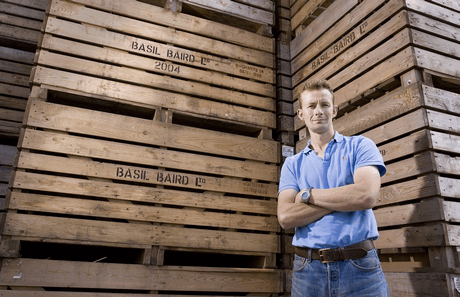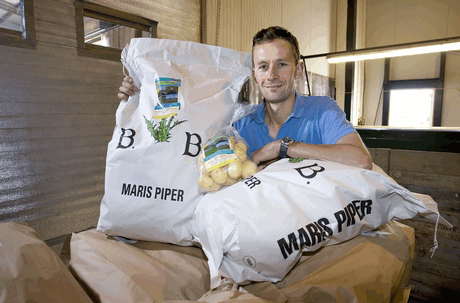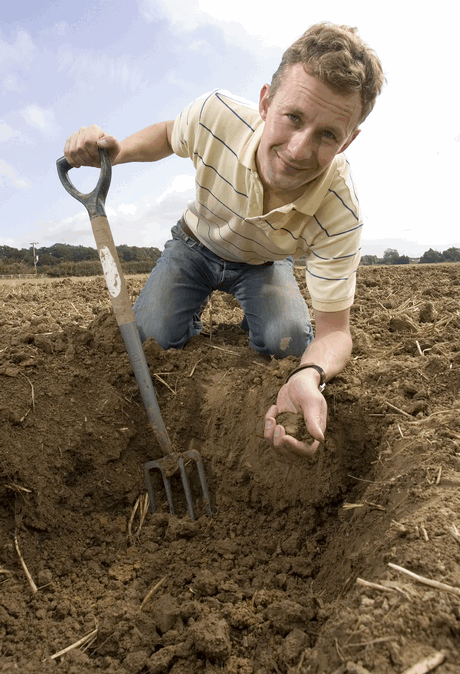Young Farmer of the Year Finalist – Nick Baird

“I’ve always been known as Basil Baird’s son – I wanted it to be the other way round, so he would be known as Nick Baird’s father.”
So says the 32-year-old, who’s been determined to put his own stamp on the business since completing his studies and having a spell travelling eight years ago.
Nick’s now the driving force behind this 1000ha (2500-acre) operation based at Funtington in West Sussex.
The set-up includes 500ha (1250 acres) of combinable crops and a pig enterprise, but potatoes have been the enterprise with which the ex-Cirencester student has made his mark.
“If you want to do anything well, you’ve got to have a passion for it – and potatoes certainly ticked that box for me,” Nick says. “I was running the grader when I was 16.”

They grow their own seed, have a packhouse operation and supply all the major supermarkets, along with local farm shops and retailers.
It’s been an exciting and fast-changing period since Nick joined the business. He rented his first bit of potato land – 50 acres – in 2000. Now, he manages 750 irrigated acres and 250 non-irrigated acres, producing about 18,000t, for a raft of different markets, with his own brand named Kingleyvale Potatoes.
He’s determined to put his part of the world on the potato map. “All you hear about is Cornwall and Suffolk – well I want to compete against those traditional growing areas.”
He grows 10 varieties for conventional markets and three for organic, with yields ranging from 17t to 27t/acre. Some are sold under the brand he’s devised, making the most of the “story” of the crop.

Nick has invested time in sourcing land, and now rents it from 12 landlords in West Sussex, Hampshire and Dorset. He’s even wondering about growing the crop in Kent.
“When I told people about the Dorset land, they thought I’d lost the plot, but it’s very sandy soil and close to the coast so the frost risk is low. Having different landlords also spreads the risk because we haven’t got all our eggs in one basket.”
Nick prefers to rent ground rather than purchase it. The figures simply don’t stack up to buy land at, say, £7000/acre as the rotation would mean it was only used for growing potatoes one year in six. He invests instead in the business and a “hub” at Funtington, putting up more buildings and storage, which could always be put into another use if potato margins were to nosedive.
This notion of spreading risk is a theme he returns to a lot. “Potatoes are inherently risky, but we have a high-input system that lowers the risk so we have a better chance of getting the quality of product we want to achieve.”
“We change machinery more than other people – we don’t let the main items get any older than three years old so this means the risk is minimised and, crucially, more predictable and quantifiable.”

He employs more than 20 staff (this rises to as many as 60 at peak times) and counts among his “key staff” the potato manager. “Before, I’ve been too close to the coal face and the danger is that you fail to spot problems looming. I’ve had to learn to delegate and walk away from some of the day-to-day problems.”
Nick clearly thrives on the business side – particularly the negotiation aspects, and has a reputation for delivering quality produce year-round. “Reputation is crucial in this business. It takes a long time – and a lot of hard work – to establish a good one. “
He’s now supplying 50 Waitrose stores across four counties in the south of England (he supplies 20% of their potatoes across the whole year).
He admits to having made mistakes. “I’ve got a degree in hindsight,” he says. But he’s achieved great things and there’s no sign of his slowing down.

